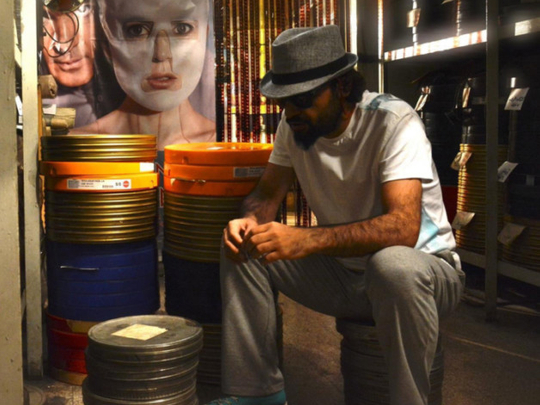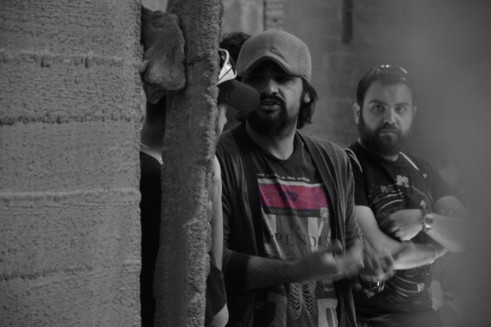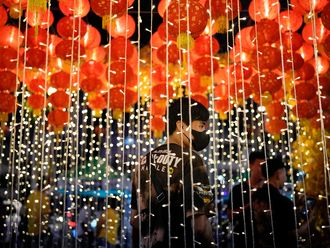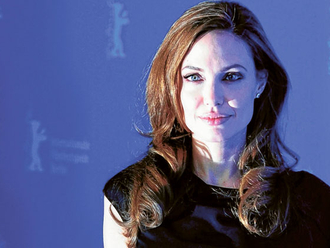
In the eyes of the world, Syria is in a stalemate. But Syrians see things differently. From within a war-torn country, Syrian film producer Mohammad Abdul Aziz tells us about his homeland.
When asked to “speak to us about Syria”, he began by recalling a dark day in January, as Damascus was being shelled. “It’s very difficult to talk about an endless Syria in a short interview or in a poem, for we are speaking of the eternal heart of the ancient world.”
He says Syria’s precious treasure lies in its people, their hearts, and their varied backgrounds and cultures and that, despite the woes of war, he cannot but help capture the beauty that is embodied in every Syrian grain of wheat, in every tree, and in every drop of water.
“I cannot but speak of the generosity of the Druze and their nobility in the South, of the loyalty of the Kurds in the North, of the light-spirited Alawites on the coast, of the good-heartedness of the people of Damascus, of our moderate Sufi Muslims, of our first Christians, of the Syrian Jews, and of the beauty of the Cricassians, Syriacs, Assyrians, Armenians, Mardinis and Yazidis. We are the treasure and cradle of the ancient civilisations. In one of our crazy moments, we invented the first alphabet and engraved it on clay. We were the first to build houses, domesticate birds, and to plant grains.”
Abdul Aziz was born in northern Syria, along the Turkish borders — the ones that were “planted with mines”, he says.
“As the Turkish soldiers got bored, they would turn into snipers and shoot at farmers working in the fields. Such occurrences continued to take place until the end of the 1990s.”
That was also the time that Abdul Aziz’s identity was being formed, in the midst of borderless and interweaved ancient cultures, including the Assyrians, Syriacs, Kurds, Armenians, Cricassians, Jews and Arabs. “As was the case for most families, our family also interacted and mixed with all,” Abdul Aziz explained with lament as he spoke of his country — a Syria that was a mother of all and to all.
Speaking about Syrian revolution, and the chaos and destruction, he says: “In the beginning, I leaned towards the revolution and I took part in many of its events. I was a believer in the idea of a peaceful change, where a renewed social contract would be constructed, one that would include elements that would contribute to building a democratic state based on the principles of justice and equality.
“But as the revolution began to deviate towards arms and then religion, I stepped away, completely, especially as extremists took control and hijacked the whole scene; it was also then that the catastrophe came about and darkness enveloped our country.”
Cinema
When asked about the reason behind his career choice, he says, “My father passed away while my mother was seven months pregnant with me, and so I never had the chance to see or know my father except through photographs. It was then that my empathetic relationship with photos had begun. Every photo embodied a soul, and specifically, my father’s soul. Every photo revealed a story about my father and my history. With time, I realised that I had formed an inventory in my mind with all the collected images, and later found myself taking those images to the screen of the cinema.”
Abdul Aziz has produced a number of important films. On his latest accomplishments, Abdul Aziz speaks of two films produced in the past two years: “Four O’clock at Paradise”, and “The Fires”. In both films, Abdul Aziz portrays today’s war-torn Syria and depicts its crisis in its farthest dimensions.
In “Four O’clock at Paradise”, he shows the fate of seven characters whose lives intersect during the course of one day in a war-ravaged Damascus, and he delivers to his audience a glimpse of the hell in which they live as their country swings between life, death, and becoming legendary.
In “The Fires,” Abdul Aziz captures the lives of four women struggling amid the burning fires of a war that threatens to burn each and everyone.
Life under the shelling
Abdul Aziz continues to live in Syria, in a wounded and bleeding homeland. When asked if he had considered leaving, or if he plans to leave, he says that even with the lack of security and most dangerous living circumstances, he has no desire whatsoever to leave Damascus.
“When I imagine leaving, fear takes over my senses, and I immediately drive the idea out of my mind. I try, like others here, to coexist with the illusion that we will overcome this black era of our modern history. I truly believe that if I had to leave Damascus one day, I would faint before reaching the airport. Even today, January 25 [2015], as I answer your questions, seven rocket-propelled grenades fell in the vicinity of my home, in the neighbourhood in which I live, but as usual, my son and I prepared breakfast and continued to live our desired life in Damascus.”
To those who left Syria, he says:“To all of my fellow Syrians who are now scattered across the world, I encourage you to integrate into the societies in which you have settled and to offer the best of what you have to the generous host countries that have embraced you and presented you with a new life. I firmly believe that all of us in this universe are inter-connected and that we have a responsibility towards the smallest stone and the largest mammals. When we are aware of this aspect and of our ultimate universal connectedness, everything complicated becomes resolvable.”
Message to the West
“Personally, and on behalf of everyone who lives in our region, I extend to the West our deepest feelings of love. The West has contributed a very important part to helping us better understand our humanity, and they have added a great deal in the fields of arts, economics, philosophy, medicine and social studies. Once again, I truly believe that we are all interconnected on this unique and fascinating planet in our universe, and I further believe that our differences in geographies and cultures should unite us and bring us together to celebrate the principles of love, beauty, and goodness. We have all lived on this planet together as if in one nation, since its dawn and for ages; technology has brought us closer than we could have ever imagined possible, and we should work towards celebrating the beauty of this reality and cast-off hatred and divisions to come between us.”
As for western media and its misrepresentations and stereotypes, Abdul Aziz asserts, “I don’t personally have a problem with our representation in Western media as terrorists or villains, for it is but a stereotypical depiction, although it does reflect truth in some cases. We have to admit to this fact and work on treating the problems. However, I do not believe that these kinds of films are by any means helping to correct the problems. They only shed a negative light as they present a narrow, stereotypical perspective.”
Creating love
As for his cause in life, the Syrian film producer says, “My cause is to create what I love with the hopes of making a difference and seeing a less violent world. There are so many people suffering today in indescribable ways. Many of our Syrian women are working as female slaves and many children are being taken advantage of in this grinding war. It is a very sad reality.”
To date, Abdul Aziz has produced: “Damascus with Love”, “Half MG of Nicotine”, “Four O’clock at Paradise”, “The Fires”, and “The Two Immigrants”. He has also received a number of awards for his films including the Tetouan Mediterranean Film Festival (Rabat), Dubai International Film Festival, and Alexandria Film Festival.
A writer and a poet, Ghada Alatrash is based in Calgary, Canada.
Mohammad Abdul Aziz’s film “Damascus with Love” will be screened by the Syrian Women’s Club in Calgary, Canada, on March 15 as part of a fundraiser for Syrian relief via The Rotary Club of Calgary and ShelterBox Canada.













